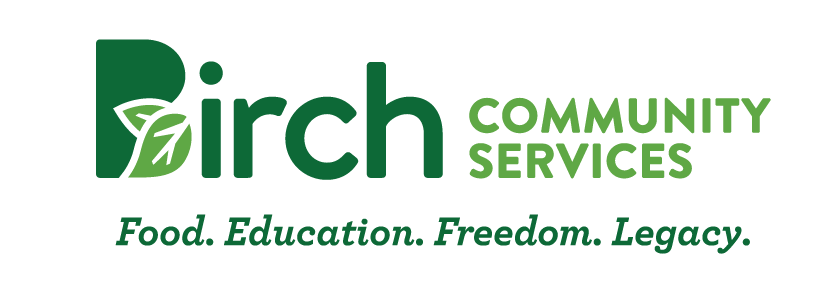Tina Birch, one of our financial counselors, has shared today’s post on behalf of the Financial Literacy team to give you a glimpse into what we teach in our courses.
How did you learn to manage money?
For most of us, the answer to this question is a hodge-podge of influences, experiences, and maybe a little osmosis from when you were growing up. Maybe you had a class in high school that included a bit of personal finance (or maybe not…this is becoming less and less common). Or maybe you’ve listened to a few podcasts or read a book from the library or paid attention to a coworker who was spouting off about their most recent investment strategy.
As with all important areas of life, it’s wise to select your influences and information sources carefully. It’s also a good idea to have a walk down memory lane to figure out what has influenced you in the past and if you still want that to be an influence on how you use money now and in the future.

Possible Money Management Training Sources
Here are some of the possibilities, to get you started thinking…
Cultural expectations…
maybe your parents expect you to care for them when they get old, maybe your coworkers expect you to go out to lunch with them once or more often per week, maybe your family has always celebrated birthdays in a big way (which means big bucks too).
Messaging in the media…
have you ever noticed how often ads tell you that you “deserve” something? How do they know? What about the expectation that rewarding yourself involves spending money? Ads are always designed to show you exactly what you’re missing.
Current circumstances…
pandemic, anyone? How about once-in-a-generation inflation? Layoffs? The shrinking of the middle class? We are living in interesting times that have a gigantic impact on how much money we have and our choices about how to use it.

Pressure from peers…
let’s face it, we still have to deal with this even as adults. And then your kiddo might come home talking about his buddy’s new video game, vacation at Disneyland, spiffy sneakers, what he got for Christmas, etc. (Then there’s a chance that marketing messaging preys upon this feeling in us all…)
Religious/spiritual values or expectations…
is charitable giving part of your heritage? Are there expectations around percentages or frequency? Is that what “good” Christians do?
Your desired standard of living…
okay, everybody has a picture in their head of what “making it” looks like. And just about nobody is there yet…just sayin’.
Family relationships/dynamics…
wow, this one is a doozy. How many of you grew up in a family where love was measured in dollars? Where gifts were given to compensate for holes in relationships? Where money was withheld to manipulate behavior? Where money was a constant power struggle between your parents? Ugh. But you can do it differently.

Tension between current and future needs…
do you always buy economy packs? Do you buy things that are on sale because you might need them later, even if you don’t need them now? Is saving hard? Do you feel that delayed gratification isn’t all it’s cracked up to be?
Needs vs. wants…
yep, where is that line? And how honest are you about that line? Any chance that line is influenced by marketing messages?
How you were taught, or not taught…
okay, another doozy. Was money a taboo subject when you were growing up? Did your parents teach you how to pay bills? Or how credit cards really work? These days, since so much of money management is digital, it takes dedicated, intentional effort by parents to pass on even the basics of healthy money management.
What you believe about the role of money…
this one is more abstract, but still weighty. Is money the root of all evil? How about the love of money–is that the root of all evil? Or is money how you measure success in your life?

Your “ideal” way of handling money…
there are a lot of rules of thumb out there by which we measure ourselves in terms of money…things like, you have to own a home to be considered a real adult, or you should have X amount of money in your retirement account by this age, or you have to acquire a college degree even if doing so racks up tens of thousands of dollars in student debt. Frankly, these are marketing messages we sell to ourselves.
Your emotional state in the moment…
another whopper. But I can tell you with absolute certainty that I use money very differently when I’m happy than when I’m discouraged. Or when I’m stressed. Or when there are 50 different demands on me and I can’t meet any of them.
Personal values…
the compass by which you set your life’s path. But sometimes they are also otherwise known as preconceived notions that should be evaluated for accuracy. For example, do you think every kid should have a chance to learn to play a musical instrument and/or play sports? Would their childhood be deficient without that? Why? Or is something else more important? Again, why? To get at your family’s root values, you just keep asking WHY.
Personal priorities…
within your values, you’ll still have preferred methods for living toward those values. For example, most families value education for their kids. But that could be accomplished via public school, private school, homeschool, or self-directed learning that looks nothing like school. You choose.

That’s a long list, right?
Even so, it is by no means comprehensive. What other influences or factors would you add, based on your own experience?
Also, you may have noticed, but none of these factors operate in isolation. In most situations where you have to make a decision about how you use money, you’ll be feeling the effects of multiple influences at the same time.
Now you can spend some time reviewing these factors and evaluating how they have charted your course in the realm of money management in the past. What do you want to change? What skills do you want to intentionally pass on to your children? Who, in your life, is a respected source for good financial advice? Is there anyone you can have these sensitive conversations with? We, at BCS, think that communication about money stewardship is one of the key steps to becoming financially sustainable. (And we also love to talk about finances, so feel free to schedule a meeting with your financial counselor at any time.)
Just remember, going forward, you get to choose many of your influences. You also get to choose how you react to those influences. Knowing what those influences are and what kind of power they’ve held over you in the past is the first step in a lifelong process of stewarding your resources well. When you know that you can take control over your choices about how you use money, you’ll feel a big weight lifted from your shoulders.
If you want to get better at managing money so you can then pass that knowledge on to your kids, check out the book, Make Your Kid a Money Genius (Even If You’re Not). We have free copies to give to participant families at BCS, so just ask your financial counselor!

Tina Birch
Tina, one of Birch’s financial literacy counselors, meets regularly with our participants to discuss how to make progress toward their financial goals. She loves taking a values-driven approach to decision-making and stewardship. She is also an avid reader and writer, so we are excited to have her share her knowledge about financial literacy with us here on The Birch Blog.
